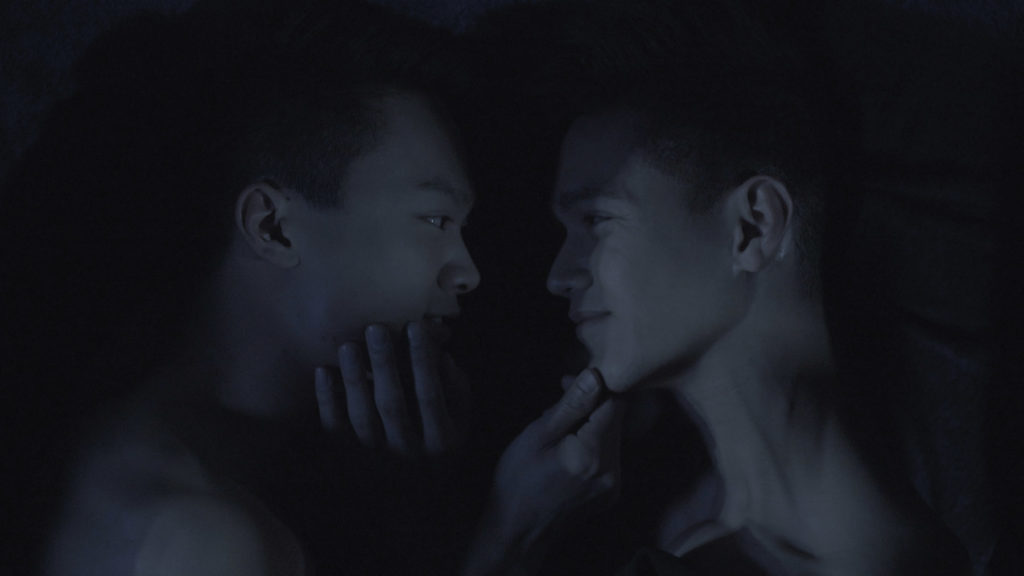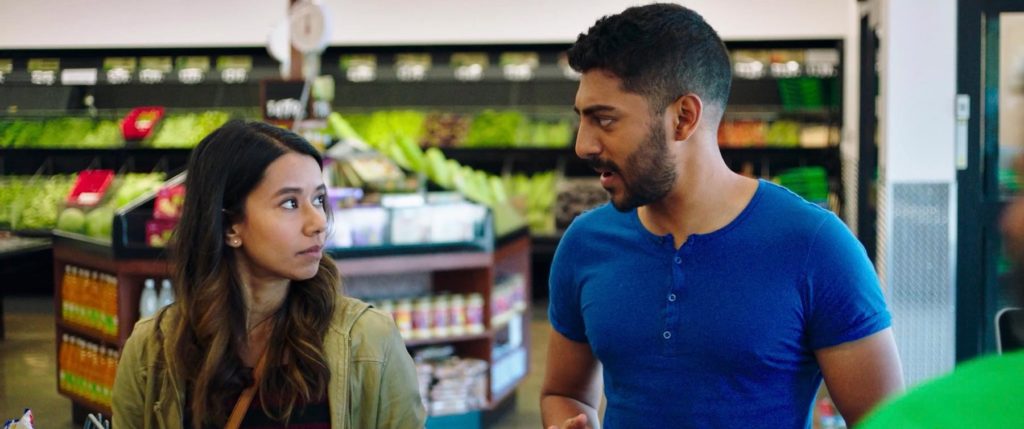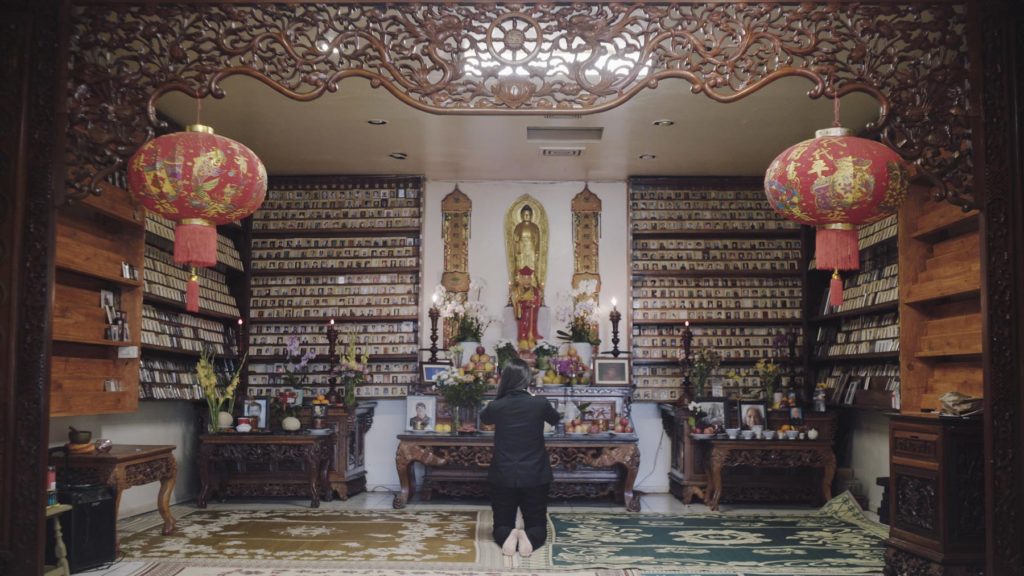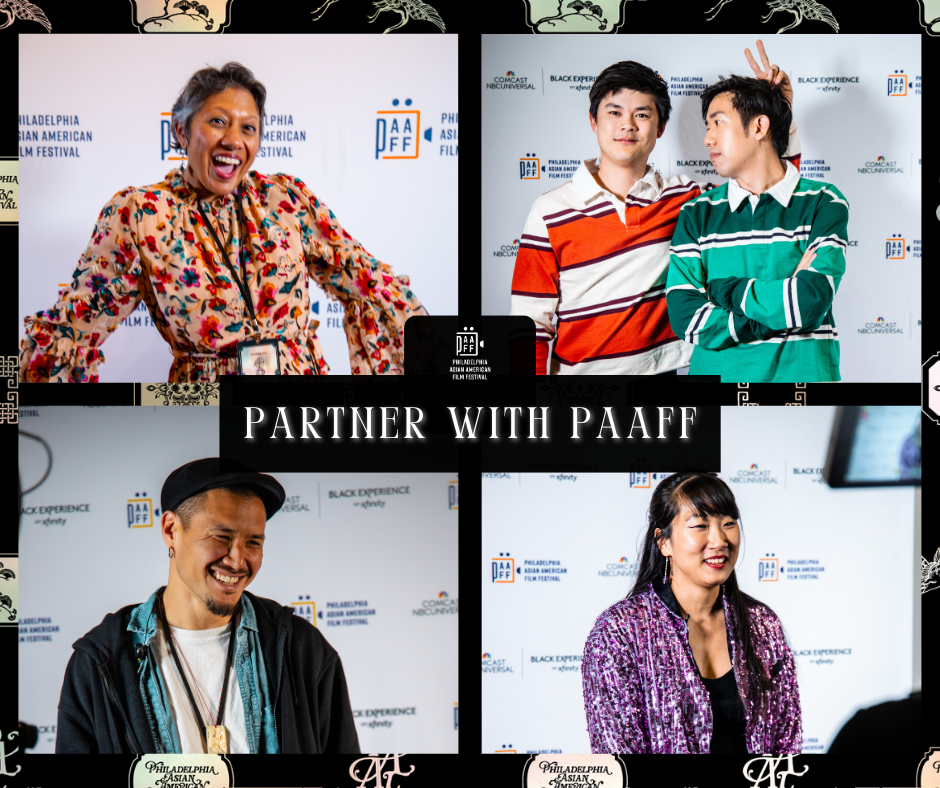Short Reflections: Queer Futures
How do you use imagination to survive in this time of uncertainty? In our queer shorts program Queer Futures, documentarians and narrative characters explore brighter futures through humor, education, resistance, letting go, self-discovery, and thinking far outside the box. Some of the filmmakers and actors from this program chatted with us about their films, their artistic roots, and their dreams. Graduation Director: Robin Wang Without spoiling anything, describe your film in 7 words or less. R. Wang: A film about loving too much. Do you have a favorite memory from making this film? Were there any challenges that you had to overcome? R. Wang: I am a rain god when it comes to filming exterior night scenes. It happened twice when we were trying to shoot the exterior yard scene and the rooftop scene that we were put off by the rain — even when the weather forecast said it was going to be clear. But my friends were really supportive and we managed to sneak out filming bits and parts whenever the rain stopped for five minutes. Eventually we got it done! What do you hope to see in the future for the film industry? How do you see yourself and your work playing a role in this future? R. Wang: I hope to see more diverse Asian voices in the film industry, more stories, and storytellers, especially those that are doubly marginalized and struggle with intersectionality (APIQ, immigrants, women, etc.); I want to dedicate myself to telling stories about the diversity of pan-Asian community and address the dilemma of how we fit ourselves in these confusing times. Stories matter. Authentic voices matter. And we definitely need more genuine storytellers in this business. What’s next for you? R. Wang: I am working on turning this short into a feature, as well as working on several other short scripts for my advanced productions at USC. Parental Guidance Suggested Director: Dane Neves Without spoiling anything, describe your film in 7 words or less. D. Neves: Puppet show for parents with LGBTQ kids. Do you have a favorite memory from making this film? Were there any challenges that you had to overcome? D. Neves: Working with puppets is always a joy…but it’s also no job for a weakling. Directing while performing a puppet is one of the hardest challenges I’m still overcoming. What do you hope to see in the future for the film industry? How do you see yourself and your work playing a role in this future? D. Neves: I hope that serious filmmakers, including myself, are open to evolving their craft and finding value in undiscovered audiences and alternative platforms. I’ve seen myself changing my mindset from believing that a film I make should be as exclusive as possible to believing that a film I make should be accessible to all. What’s next for you? D. Neves: I’m currently producing a YouTube virtual talk show hosted by a ghost puppet named Lonesome as he explores the new (para)normal. Bind Director: Emory Chao Johnson Without spoiling anything, describe your film in 7 words or less. E. Johnson: Gender, culture, adolescence meet over a binder. Do you have a favorite memory from making this film? Were there any challenges that you had to overcome? E. Johnson: BIND was the first time I developed, produced, and directed a scripted short film so I was feeling very anxious as our shoot date approached. But on the morning of the shoot, I did my best to talk myself into relaxing and to have fun, and I think it worked! I was really proud of our set. All of our team members exuded diligence and openness on set. It was an honor to have helped facilitate that set atmosphere and to have participated and witnessed our team’s collaboration. What do you hope to see in the future for the film industry? How do you see yourself and your work playing a role in this future? E. Johnson: One of the reasons I decided to put this story out into the world was because I didn’t really see any scripted content like it. Since the time I started developing this film, however, I feel like more creators are sharing these trans and nonbinary Asian American slice of life stories. It’s really inspiring to see. What’s next for you? E. Johnson: I’ve been honored and moved by the opportunities to share BIND virtually with audiences through supportive and resilient film festivals. In the coming months, I’m excited to be wrapping up a short documentary film, which continues my interest in diving into the thickness of non-cis Asian experiences and feelings. Kapaemahu Director: Hinaleimoana Wong-Kalu Without spoiling anything, describe your film in 7 words or less. H. Wong-Kalu: Mind, body, gender and healing are one. Do you have a favorite memory from making this film? Were there any challenges that you had to overcome? H. Wong-Kalu: When we discovered the original handwritten manuscript of the legend in a dusty archive – a connection to the ancestors and a script for the film. What do you hope to see in the future for the film industry? How do you see yourself and your work playing a role in this future? H. Wong-Kalu: Filmmaking is just one method of storytelling, which will never die. What’s next for you? H. Wong-Kalu: A film about Koko Head crater titled Kapo Mai Lele (Kapo’s Flying Vagina). To watch this short film program, Queer Futures, you can purchase access here. This program is available from November 5th – 15th. Watch the recorded Q&A here, conducted on 11/14 at 7:00pm EST over livestream with the featured filmmakers of this program.
Short Reflections: Queer Futures Read More »




